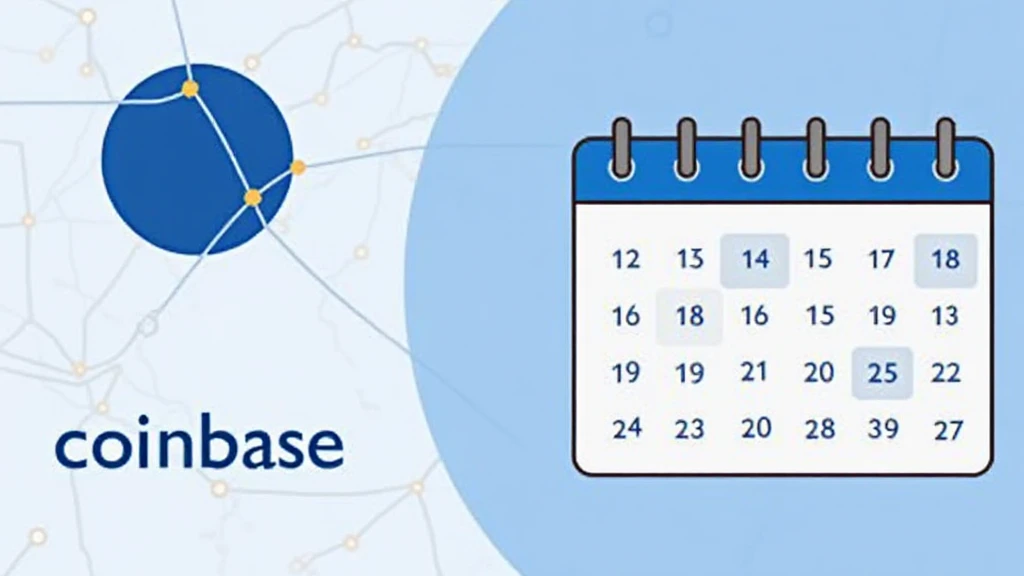Coinbase Crypto Futures Expiration Dates: Your Essential Guide to Staying Ahead
With the rapid evolution of the cryptocurrency market, understanding key components like futures expiration dates on platforms such as Coinbase is crucial for both novice and experienced traders. In 2024 alone, the crypto industry saw significant developments, with many trading volumes hitting record levels, marking a turning point in how traders approach their investments. As you navigate this complex landscape, having a grasp on the expiration dates of crypto futures could make a distinct difference in your trading success.
Understanding Crypto Futures
Before delving into the specifics of Coinbase’s crypto futures expiration dates, let’s break down what crypto futures are. Crypto futures are contracts that allow traders to speculate on the future price of a cryptocurrency. Simply put, they give you the opportunity to buy or sell a cryptocurrency at a predetermined price at a specific point in the future. This mechanism can offer significant benefits, including:
- Leverage: You can control a larger position with a relatively small amount of capital.
- Hedging: Protect your portfolio against price fluctuations by shorting futures contracts.
- Liquidity: Futures markets usually provide high liquidity, making it easier to enter and exit trades.
Why Expiration Dates Matter
If you’re trading crypto futures on Coinbase or any other platform, understanding expiration dates is imperative. On platforms like Coinbase, futures contracts typically have specific expiration dates, at which point the contract will settle either in cash or deliver the underlying cryptocurrency.

Here’s the catch: if you’re not aware of these dates, you could potentially lose out on profits or incur unnecessary losses. Let’s analyze the implications:
- Failures to close or roll over contracts can lead to forced liquidations.
- Market volatility can spike as expiration dates approach due to increased trading volume.
- Understanding when contracts expire helps in aligning your trading strategies properly.
Coinbase Futures Expiration Dates: A Closer Look
Coinbase, as one of the leading platforms for trading cryptocurrencies, offers a variety of futures products. The expiration dates for these contracts generally occur on a quarterly basis, aligning with traditional futures trading. This means that traders need to remain vigilant:
- First Quarter (Q1) Contracts: Expire on the last Friday of March.
- Second Quarter (Q2) Contracts: Expire on the last Friday of June.
- Third Quarter (Q3) Contracts: Expire on the last Friday of September.
- Fourth Quarter (Q4) Contracts: Expire on the last Friday of December.
It’s essential to check Coinbase’s official resources to stay updated on any changes to these schedules.
Local Insights: Growth In Crypto Markets
Examining local markets is equally important. In Vietnam, for example, the number of crypto users has soared, reflecting a yearly growth rate of over 30%. This rapid adoption signifies a growing interest in trading instruments such as futures.
As a trader in Vietnam, you should also consider local regulations and conditions, especially regarding futures trading. Let’s explore key resources:
- Understand the regional implications of futures expiration within local finance laws.
- Analyze crypto tax regulations.
- Keep an eye on local exchanges offering futures contracts.
Practical Strategies Around Expiration Dates
Now that you have a firm grasp on expiration dates, let’s discuss some practical strategies:
- Track expiration dates: Set reminders or synchronize your trading calendar.
- Consider rolling over contracts: If you believe in a long-term price movement, rolling over can ensure you remain engaged in the market.
- Utilize technical analysis: Understanding price action as expiration approaches can guide your decision-making process.
Utilizing Tools and Resources for Success
To further enhance your trading outcomes, consider leveraging different scouting tools. For instance, platforms like hibt.com provide market analysis coverage and updates about expiration dates that can assist in developing a successful trading strategy.
Moreover, tools like Ledger Nano X can secure your investments by reducing hacks significantly, allowing you to focus on trading without constant worry.
Staying Ahead of Industry Trends
The dynamic nature of the cryptocurrency landscape requires traders to continually adapt. Keeping an eye on industry trends such as regulatory changes or market sentiment can position you ahead of the curve. According to industry reports from 2025, the crypto landscape is shifting towards incorporating more security measures and innovative trading platforms.
With all this information, it’s time to take control of your crypto trading journey! As we discussed, knowing Coinbase crypto futures expiration dates is pivotal.
If you are ready to take the next steps in your crypto trading journey, ensure you stay informed and proactive.
Conclusion
Understanding Coinbase crypto futures expiration dates is not just for professional traders but is essential for anyone looking to make informed decisions in the cryptocurrency market. With increased user growth in regions like Vietnam, knowing how to strategically approach these expiration dates will give you an edge in this fast-paced market.
Ensure that you leverage the knowledge gained and continuously adapt your trading strategies to navigate the crypto landscape successfully. Engage with resources on platforms such as allcryptomarketnews to enhance your understanding.
Stay sharp, and happy trading!
Expert Author: Dr. John Nguyen – A seasoned cryptocurrency analyst with over 15 published papers on blockchain technology and security standards. He has also led multiple high-profile audits in the crypto space.






